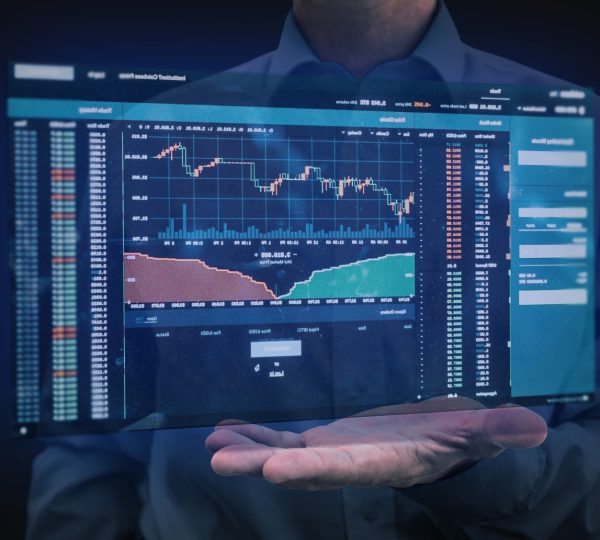In a stock buyback, the issuing business returns the part of its Ownership that was formerly split between public and private investors while paying shareholders the market price per share. When a corporation repurchases its claims, it has two options: buy the stock directly from its owners or on the open market. Dividends are no longer the favored method for returning money to shareholders in recent years; share buybacks have taken their place. Blue-chip corporations are significantly more likely to exercise buybacks due to the expenses involved; however, smaller companies may decide to do so.

Motives for Stock Buybacks
Given that it acquires equity capital by trading common and preferred shares, it can seem counterintuitive that a corporation would want to return the money. Nevertheless, there are a number of situations when a company could gain from buying back its claims, such as when the cost of capital is reduced, Ownership is consolidated, stock prices are maintained, the claims are undervalued, or when the firm’s important financial measures are improved.
Stock Repurchases cut costs.
The power to vote on corporate policy and financial choices is included in each common stock share, representing a minority ownership position in the issuing business. A company has 1,000,001 owners if there is a managing owner and one million shareholders. Companies sell shares to obtain equity capital to finance expansion, but if there are no chances for growth, holding onto all that unused equity cash amounts to sharing Ownership unnecessarily.
The company is essentially paying for the right-to-access money it isn’t using since many investors expect dividend payouts as returns on their investments. Repurchasing some or all of the shares outstanding as a consequence might be a quick and simple way to pay back investors and reduce the overall cost of capital. As a result, Walt Disney (DIS) purchased 73.8 million shares back in 2016 for a total cost of $7.5 billion, therefore reducing the number of shares that were then outstanding on the market.
Stock repurchases Streamline Ownership.
Companies issue shares to raise money for initiatives. There may be many share classes, but the most common are the normal and preferred shares. Ordinary shares, usually referred to as common shares, have holding and voting privileges.. Dividends are paid out to preferred shareholders before regular shareholders and are paid out higher on the priority list during a bankruptcy proceeding.
A company that issues numbers of shares really has thousands of shareholders with voting rights. A buyback decreases the number of owners, voters, and capital claims.
Stock buybacks maintain the price of the stock.
Shareholders often anticipate regular payments of increasing dividends from the company. Another goal shared by company leaders is to maximize shareholder value. Firm leaders, however, will need to find a balance between winning over shareholders and remaining flexible if the economy experiences a slump. This because does a certain demographic choose dividends over buybacks? If the economy deteriorates or enters a recession, a firm may be forced to cut its bonuses in order to preserve cash. A stock sell-off would undoubtedly follow the conclusion. However, if the bank decided to buy back less shares, it would have less of an impact on the stock price and still preserve capital.
If a corporation commits to distributing dividends with steady growth, its stock price will undoubtedly increase, but the payout plan may also have disadvantages. Rewards cannot easily be reduced during a recession, while share buybacks may, with far less harm to the stock price.
The Share Price Is Too Low
Companies that routinely repurchase shares are doing so because they are adamant that the value of their shares is undervalued. Undervaluation can happen for several reasons, but it often occurs due to investors’ limited capacity to see beyond a company’s immediate results, dramatic news stories, or a generalized negative outlook. For instance, stock buybacks swept the country while the economy emerged from the Great Recession in 2010 and 2011. Although many companies began making upbeat projections for the future, their stock prices still reflected the economic doom that had afflicted them in past years. These companies made an investment in themselves by repurchasing shares in the belief that they would profit when share prices at last began to reflect new, more advantageous economic realities.
If one stock is materially undervalued, the issuing company may decide to repurchase some of its shares at a discount and then re – issue those after the market has stabilized, increasing its equity finance despite issuing any additional shares. Investors may be unwilling to purchase the reissued shares, though, if they feel that a firm has exploited them in this way.
Imagine that a company issues 100,000 shares for a price of $25 each, resulting in $2.5 million in capital. The share price drops to $15 as a result of a tragic news item that raises questions about the organization’s ethical standards. While having to wait out the panic, the company spends $750,000 to buyback 50,000 stocks at $15 apiece.The business is still doing well, and it will launch a brand-new, fascinating product line in the upcoming quarter, driving up the price above the original sale value to $35 per share.Following a resurgence in popularity, the business remasters the 50,000 copies at the going rate, earning a total of $1.75 million in additional funding. The corporation raised its equity from $2.5 million into $3.5 million ($2.5 million – $750,000 = $1.75 million + $1.75 million = $3.5 million) without any further diluting Ownership as a result of the temporary undervaluation of its shares.
Repurchasing shares is a straightforward method to increase a firm’s appeal to investors. When a corporation has fewer outstanding shares because fewer shares now divide the yearly earnings, the earnings per share (EPS) proportion will automatically increase. For example, a company with 100,000 issued shares and $10 million in yearly revenue does have an EPS of $100. However, if it purchases 10,000 of those shares, reducing the number of shares outstanding to 90,000, its EPS increases to $111.11 without a growth in earnings.
Additionally, before a planned repurchase, short-term investors sometimes attempt to profit quickly by investing in a firm. The unexpected influx of investors drives up the price-to-earnings ratio (P/E) for the sector and artificially inflates the stock’s valuation. The equity return (ROE) ratio is another important financial indicator that is advantageous. Repurchases show that a company is financially sound and no longer needs additional equity funding. The market may also conclude that management has sufficient faith in the business to invest more.
When compared to buying a rival company or spending money on research and development for new technologies, share repurchases are often seen as less risky. They may also be profitable as long as the company keeps growing. Additionally, investors often view share buybacks as an indication that shares will increase in value in the future. Share buybacks may therefore result in a spike in stock purchases from investors.
Issues with Stock Buybacks
A stock buyback impacts the credit rating of a corporation if it loans money to buy back the shares. Because loan interest is tax deductible, many businesses finance stock buybacks. Debt commitments, however, deplete cash reserves, usually required when the economy turns against a firm. Due to the following, credit reporting agencies have a terrible opinion on such funded stock buybacks: They do not view increasing EPS or profiting from shares that are trading below par as justifications for going on debt. After such a move, the credit rating is frequently lowered.
Beginning in January 2023, certain circumstances will make publicly traded firms’ stock buybacks subject to a 1% excise tax.
The following circumstances apply:
The tax is not applicable if the repurchases total less than $1 million.
The taxable value of stock repurchases is decreased by new issuance to the general public or employees.
The tax is not levied if the buyback is seen as a dividend.
The excise tax is not applied to regulated investment businesses and real estate investment trusts.
Taxes are not tax deductible.
Effect of Stock Repurchases on the Economy
Notwithstanding the aforementioned, a company could gain from buybacks. How is the economy generally? The national economy may be somewhat benefited by stock repurchases. They typically have a far more significant, positive effect on the financial marketplace because they raise stock values. The stock market and the economy do, however, support one another in many ways. For instance, research has shown that the “wealth effect”—a phenomena where stock market gains have a positive impact on consumer morale, spending, and major purchases—occurs.
Another way that developments in the financial system have an impact on the economy is through lower borrowing costs for businesses. These companies are more likely to spend money on R&D or increase their operational space. By increasing hiring and revenue, these efforts also assist to strengthen the family balance sheet. They also increase the possibility that clients may be able to obtain more money to start a business or buy a house.
Is a Share Repurchase a Good Idea?
A company may profit from a share buyback if it doesn’t need to finance growth or other activities or desires to regulate the share price on the market. Repurchases may or may not benefit investors, based on their financial status and aspirations. Nevertheless, if a company repurchases the shares and then sells them at a profit, investors can buy them back at a cheaper price.
Who Gains from a Stock Repurchase?
The situation that caused the buyback will determine the answer. The firm typically gains from a buyback, but if a corporation is having trouble, investors may also profit as they can reinvest the money in a more successful business.
What Is the Purpose of a Stock Buyback?
A share buyback removes outstanding shares from the market and gives investors their money back.
the conclusion
To maintain stock prices, bring stock prices back to their true worth, improve financial ratios, or lower the cost of capital, a corporation may repurchase its shares. Stock buybacks are advantageous to investors because they frequently replace dividends. However, stock repurchases have disadvantages for the company, such as potential taxes on the buybacks, a drop in credit rating, or a decline in investor confidence.



